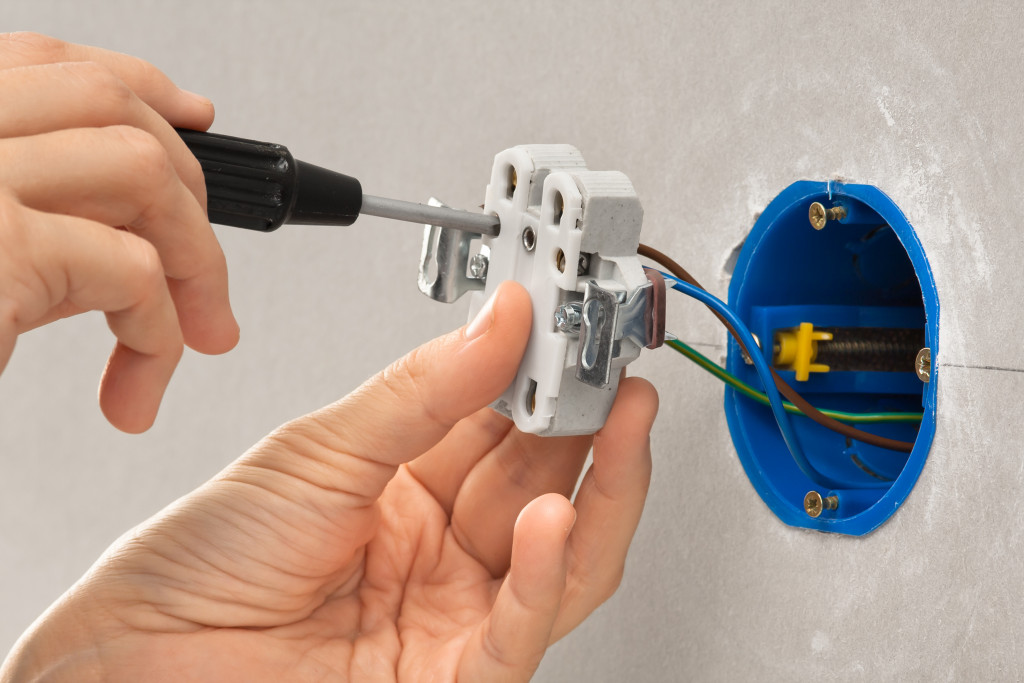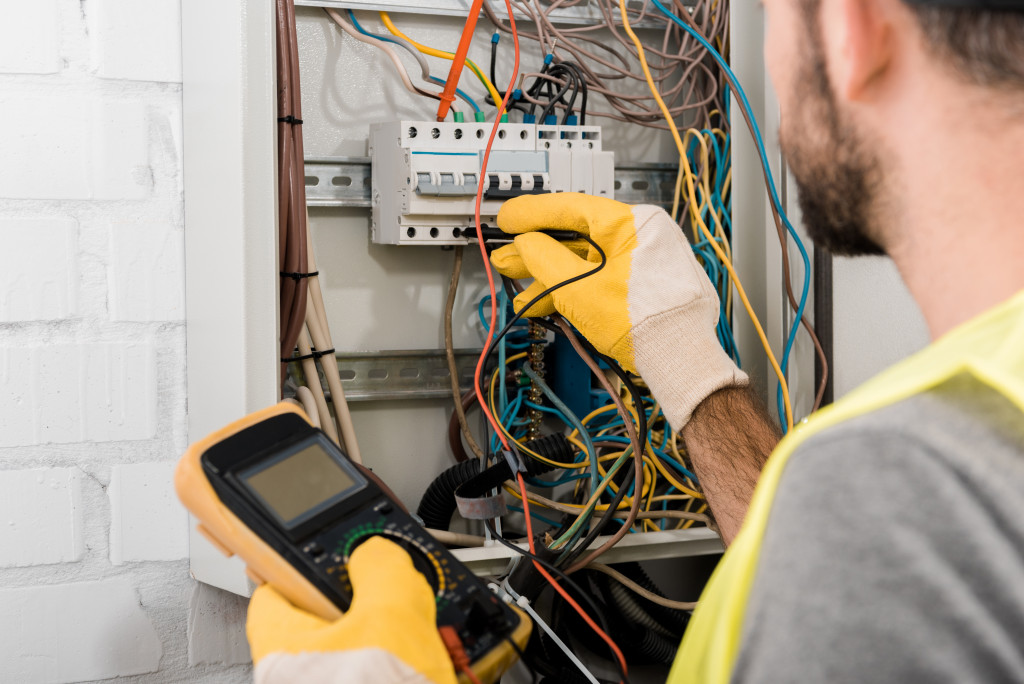Only an electrical circuit that is completely closed will allow electricity to flow. As a result, all electrical connections in a circuit must be physically and constantly maintained. A circuit’s intrinsic features and the quality of the electrical contact can limit the passage of electricity even though all items inside it are physically linked. The increased voltage will not necessarily enhance stunning if an electrical contact issue exists in a water bath. Instead, it can impair meat quality and raise the danger to human health and safety.
While you keep electrical services like Wire Works in mind, ensure your electrical circuit functions correctly by following these helpful hints.
Manage Electric Circuit Current
The wires transporting electricity in and out of a structure are separated and never come into direct contact. Even so, anything can occur that brings the wire bringing in the current into touch with the wire sending the current out or with the ground wire, leading to a short circuit (as the name implies). An appliance (which serves as a resistor) or another resistor restricts the amount of current that can travel through a circuit when a charge passes through one of these elements. Appliances are made to run at a low enough current to be safe. In a circuit, the proper voltage and resistance regulate the current while ensuring circuit safety. By eliminating part or all of the circuit’s resistivity, the voltage can force an enormous amount of current through the wires.
For example, if a circuit has a 100-volt potential difference and a 100-ohm resistance, the wires carrying the circuit’s current will be rated at 1.0 amp. There will be 1000 amps of current in the course of the 100-ohm resistance is abruptly removed, and only the 0.10-ohm resistance is left. As a result of the high current, the wires can get damaged or even catch fire.
When something overheats and melts wires, the circuit is fused shut, bypassing the resistance, which is one of the many potential reasons for a short. Something that damages a wire’s insulation, enabling the incoming and ground wires to contact, can also be blamed. The voltage forces an enormous amount of charge through the cables after the resistance is gone, which causes them to overheat. There are some methods to avoid such a scenario in the future. Fuses, circuit breakers, and surge protectors are the three most prevalent types of safety devices.
Conduct a Regular Inspection
Regularly inspecting your electrical system is like regularly checking your health. A simple self-check of your electrical outlets and wiring can save you time and money in the long run. Once a year, a thorough inspection of your electrical system will reveal any possible issues. The simpler it is to address a problem and minimize failure-related risks, the earlier it is discovered.
Check for Faulty Wiring

Keeping an eye on your electrical outlets is critical. If the outlet cover feels warm to the touch, it’s a warning indication that something is wrong with the wiring, and that’s why the temperature has risen. You should call a professional electrician to repair any broken wires as soon as you see them. To save money, don’t make repairs or tape over exposed cables.
Avoid Putting Yourself Under Too Much Stress
One of the most frequent issues with residential electrical systems is overloading. When it comes to how to utilize technology, it’s essential to exercise caution. Knowing how much power your appliances use and how much electricity your outlet delivers is critical to prevent accidents. Because they use so much electricity, kitchen equipment should have their outlets. Overloading a circuit by connecting too many devices at once can result in a power failure.
Water and Electricity Do Not Mix
Even though this seems like basic knowledge, electric shocks happen all the time. It’s possible that cleaning equipment with a wipe or running water through them is to blame. Before beginning, make sure any electrical equipment is unplugged. Keep hairdryers and electric shavers away from water sources like bathroom sinks to prevent these accidents. Sockets should be kept out of the path of showers and other moist places. The wiring in these locations has to be checked regularly. Avoid using the hair straightener and washing your hands at the same time.
It’s always a good idea to be on the lookout for threats to the security of your home. Investing in high-quality, certified electrical wiring can help your electrical system operate more smoothly. Known for their excellent quality, safety, consistency, precision, and durability, Finolex cables have been the industry’s top choice for over 60 years.

